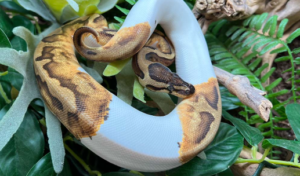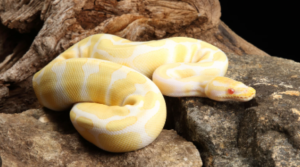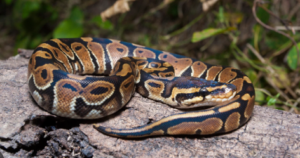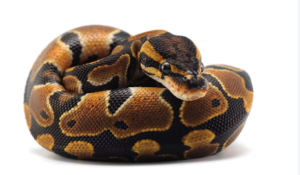Ball pythons, known for their docile nature and unique patterns, are among the most popular pet snakes worldwide. If you’re a ball python owner or considering becoming one, you might wonder: How long can ball pythons go without eating? The answer might surprise you, as these snakes are capable of enduring extended fasting periods under the right circumstances. Let’s dive deep into this intriguing question, explore the factors involved, and understand what it means for their health and care.
The Natural Fasting Ability of Ball Pythons

Ball pythons (Python regius) are native to sub-Saharan Africa, where they inhabit savannas and forests. Their wild environment plays a significant role in shaping their feeding habits. Food availability in the wild isn’t consistent, and ball pythons have adapted to survive periods of scarcity. This evolutionary trait allows them to go weeks or even months without food, provided they are healthy and properly hydrated.
How Long Can They Actually Go Without Eating?

The fasting duration for ball pythons depends on their age, health, and environmental conditions.
Juveniles
Young ball pythons are still growing and require regular meals to support their development. Juveniles should not go without food for more than 2–4 weeks. Extended fasting at this stage could hinder growth and weaken their immune systems.
Adults
Adult ball pythons, being fully grown, can survive without food for longer periods. Healthy adults can go without eating for up to 3–6 months. However, this isn’t ideal and should only occur under specific conditions, such as during breeding season or natural fasting behavior.
Record Fasting Periods
Some ball pythons have been documented fasting for over a year! These cases are exceptional and typically occur in snakes with excellent fat reserves.
Why Do Ball Pythons Stop Eating?

Ball pythons can stop eating for a variety of reasons. Understanding these reasons is crucial for determining whether their fasting is normal or a cause for concern.
Seasonal Changes
In the wild, ball pythons may reduce or stop eating during cooler months or when food is scarce. This behavior can also occur in captivity, especially if the snake senses changes in temperature or light.
Breeding Season
During the breeding season, males may focus on seeking mates rather than eating. Females, especially gravid ones, may also reduce their food intake.
Stress
Stress from handling, relocation, loud noises, or improper enclosure setup can cause a ball python to refuse food.
Health Issues
Illnesses, such as respiratory infections, parasites, or mouth rot, can lead to a loss of appetite. If your snake is lethargic or showing other symptoms, consult a vet immediately.
Improper Husbandry
Incorrect temperatures, humidity levels, or enclosure setup can deter your snake from eating. Ball pythons are sensitive to their environment and require specific conditions to thrive.
Signs of Healthy Fasting
While it may seem alarming for your ball python to skip meals, fasting can be entirely normal if they exhibit the following signs:
- Active Behavior: They remain alert and responsive.
- Healthy Weight: No significant weight loss is observed.
- Clear Skin and Eyes: They show no signs of shedding problems or dull eyes.
- Normal Breathing: There are no wheezing or clicking sounds.
When to Be Concerned
Although ball pythons are capable of fasting, prolonged periods without food can become problematic if certain warning signs appear:
- Rapid weight loss (more than 10% of body weight).
- Lethargy or lack of movement.
- Refusal to drink water.
- Signs of illness, such as mucus around the mouth or nostrils.
If you notice any of these symptoms, seek veterinary advice immediately.
Tips to Encourage Your Ball Python to Eat
If your ball python is refusing food, here are some strategies to try:
Adjust the Feeding Schedule
Offer food during the evening or nighttime, as ball pythons are nocturnal hunters.
Experiment with Prey Size and Type
Some ball pythons prefer smaller prey or a switch from frozen-thawed to live prey.
Ensure Proper Enclosure Conditions
Maintain consistent temperatures (78–80°F on the cool side and 88–92°F on the warm side) and humidity levels (50–60%).
Reduce Stress
Minimize handling and provide plenty of hiding spots in the enclosure.
Scent the Prey
Scenting prey with chicken broth or rubbing it against another reptile can stimulate feeding responses.
Rule Out Illness
If all else fails, consult a reptile veterinarian to ensure your snake isn’t suffering from an underlying health issue.
How Ball Pythons Survive Fasting

Ball pythons have evolved remarkable physiological mechanisms to survive fasting:
- Metabolism Adjustment: They slow down their metabolic rate to conserve energy.
- Fat Reserves: They rely on stored fat for energy during periods of food scarcity.
- Water Retention: They minimize water loss to maintain hydration.
These adaptations make ball pythons one of the most resilient snake species, capable of enduring extended fasting without immediate harm.
Final Thoughts
Ball pythons are fascinating creatures with remarkable survival skills, including the ability to endure long fasting periods. While healthy adult ball pythons can go without food for months, it’s essential to monitor their behavior and ensure their environment meets their needs.
By understanding the reasons behind their fasting and providing optimal care, you can ensure your ball python remains happy and healthy, even during their occasional hunger strikes.
If you’re ever in doubt, consulting a vet or reptile expert can offer peace of mind and keep your scaly friend in top condition. With proper care and attention, your ball python will thrive and continue to enchant you with its unique personality and resilience.
